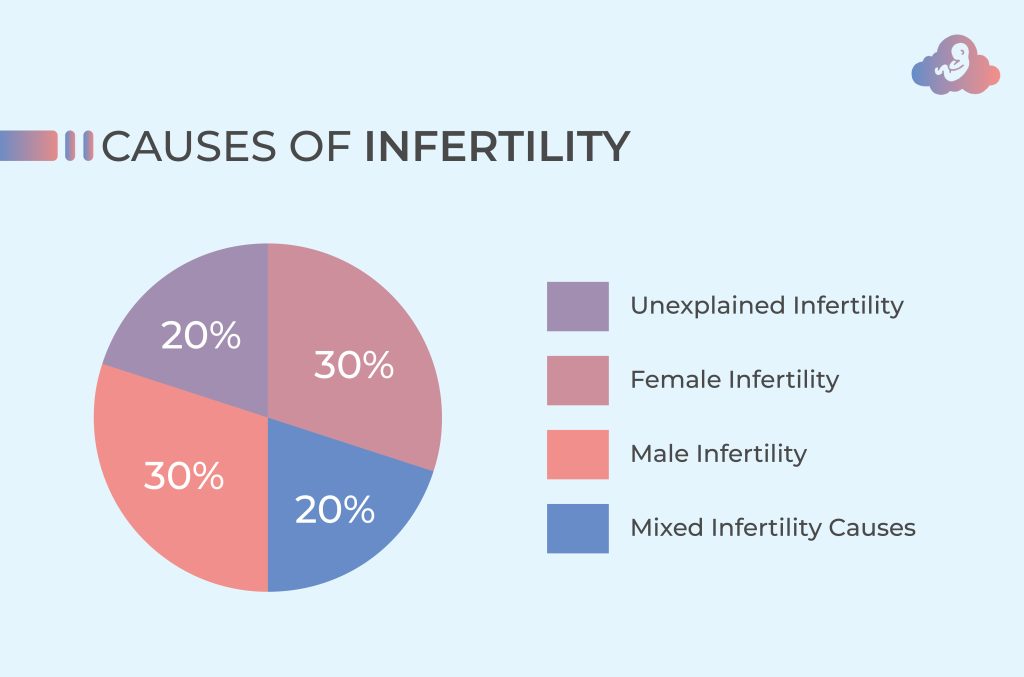The Emotional Roller Coaster of Infertility
Infertility can be a deeply painful and emotional journey for couples, impacting their relationships, mental health, and overall well-being. Understanding the profound impact of infertility is crucial in providing effective support to couples navigating this difficult challenge.
Understanding the Emotional Toll of Infertility
Infertility can bring forth a rollercoaster of emotions for both partners. Feelings of sadness, grief, frustration, and guilt are common as couples grapple with their inability to conceive. It is important to recognize that these emotions are valid and that each partner may experience them differently. Open communication is key in acknowledging and empathizing with each other’s emotions, fostering a supportive environment.
Additionally, societal pressures and expectations surrounding pregnancy and parenthood can exacerbate the emotional turmoil experienced by couples facing infertility. The weight of these external factors can intensify feelings of inadequacy and self-doubt. By recognizing and addressing these societal pressures, couples can work together to develop a more supportive mindset.
Furthermore, the journey through infertility can also impact a couple’s relationship dynamics. The stress and emotional strain of fertility treatments, failed attempts, and uncertainty about the future can create tension between partners. It is essential for couples to prioritize their relationship by finding ways to support each other, whether through therapy, shared activities, or simply spending quality time together.
Moreover, the financial burden of infertility treatments can add another layer of stress to an already emotionally charged situation. The cost of procedures such as in vitro fertilization (IVF) or surrogacy can be significant, leading to difficult decisions about how far to pursue treatment based on financial constraints. Seeking financial counseling or exploring alternative options for funding can help alleviate some of the financial strain and allow couples to focus on their emotional well-being.

The Importance of Open Communication Between Partners
Open and honest communication between partners is not only crucial when navigating the challenges of infertility but also plays a vital role in strengthening the overall relationship. When dealing with the emotional rollercoaster of infertility, being able to openly share fears, frustrations, and hopes can create a deep sense of connection and unity between partners. This level of vulnerability fosters trust and empathy, laying a solid foundation for weathering the storm together.
Furthermore, creating a safe space for open communication allows couples to not only express their emotions but also to brainstorm potential solutions and coping mechanisms. It provides an opportunity for both partners to feel heard and understood, reducing feelings of isolation and fostering a sense of togetherness in the face of adversity.
Active listening is equally important when supporting one’s partner through infertility. It involves not only hearing what your partner is saying but also understanding their perspective and empathizing with their feelings. By practicing active listening, couples can avoid misunderstandings and conflicts, leading to a more harmonious and supportive relationship dynamic.
Validating your partner’s emotions and providing unwavering emotional support are key components of effective communication during infertility struggles. Knowing that their feelings are acknowledged and respected can significantly reduce psychological distress and strengthen the emotional bond between partners. Through open and compassionate conversations, couples can navigate the complexities of infertility with resilience, understanding, and unwavering support for each other.
Coping Strategies for Couples Facing Infertility
Dealing with infertility can be overwhelming, but there are coping strategies that can help couples manage the emotional anguish:
- Self-care: Encouraging both partners to prioritize self-care activities, such as exercise, hobbies, and relaxation techniques, can provide a much-needed respite from the emotional stress associated with infertility.
- Support groups: Joining infertility support groups or online communities can be highly beneficial. Interacting with individuals who share similar experiences can provide a sense of belonging and validation.
- Seeking professional help: Couples struggling with infertility may find it beneficial to seek guidance from a mental health professional specializing in reproductive issues. Therapy can provide tools for coping with emotional distress and assist couples in finding resilience.
It’s important for couples facing infertility to remember that they are not alone in their journey. Many individuals and couples around the world are going through similar challenges, and finding a community of support can make a significant difference in navigating this difficult path. Connecting with others who understand the unique struggles of infertility can offer a sense of comfort and solidarity.
In addition to seeking emotional support, couples may also benefit from exploring alternative treatments and fertility options. Consulting with a reproductive endocrinologist or fertility specialist can provide valuable insights into different paths to parenthood, such as in vitro fertilization (IVF), surrogacy, or adoption. Understanding all available options can empower couples

Seeking Professional Help: When and How to Find Support
Deciding to seek professional help is a personal choice that should be made when the couple feels ready. If the emotional toll of infertility begins to interfere with daily life, relationships, or mental well-being, it might be time to consider speaking with a therapist or counselor.
A mental health professional can offer a safe and non-judgmental space, helping the couple explore their feelings and develop effective coping strategies. They can also provide guidance on navigating the medical options available and offer support throughout any fertility treatments.
It’s important to remember that seeking professional help is not a sign of weakness, but rather a proactive step towards emotional well-being. Infertility can be a challenging journey, and having a trained therapist or counselor by your side can make a significant difference in how you navigate this difficult time. These professionals are equipped with the knowledge and skills to help you process your emotions, communicate effectively with your partner, and make informed decisions about your fertility treatment options.
Furthermore, therapy can provide a valuable space for both individuals in the couple to express their concerns, fears, and hopes in a supportive environment. By addressing these emotions openly and honestly, you can strengthen your bond as a couple and develop resilience in the face of adversity. Remember, you don’t have to go through this alone – reaching out for help is a courageous and empowering choice.
The Role of Family and Friends in the Healing Process
Family and friends play a significant role in supporting couples dealing with infertility. However, it is essential for loved ones to approach the topic with sensitivity and empathy. Well-meaning but insensitive comments or advice can inadvertently worsen emotional distress.
Providing emotional support and understanding without offering unsolicited advice is crucial. Simply being present, listening, and offering comfort can greatly help relieve the emotional burden carried by couples struggling with infertility. Empathy and compassion can go a long way in creating a supportive network for the couple.
Moreover, family and friends can also assist in practical ways, such as accompanying the couple to medical appointments or helping with household tasks during particularly challenging times. Small gestures like preparing a meal, running errands, or taking care of chores can make a significant difference in alleviating some of the stress associated with fertility treatments.
It is important for loved ones to educate themselves about infertility to better understand what the couple is going through. By learning about the emotional, physical, and financial implications of infertility, family and friends can offer more targeted and meaningful support to their loved ones.
Navigating Relationship Strain: Tips for Staying Connected
Infertility can strain even the strongest of relationships. To prevent infertility from driving a wedge between partners, it is important to actively work on staying connected:
- Quality time: Carving out dedicated quality time for each other, free from discussions about infertility, can help restore intimacy and strengthen the emotional bond between partners.
- Shared activities: Engaging in activities that bring joy and relaxation can help create positive experiences and foster connection.
- Communication: Regularly discussing emotions, concerns, and hopes related to infertility can help maintain open lines of communication and prevent misunderstandings.
It’s crucial to remember that infertility is a shared experience that can impact both partners differently. Acknowledging and validating each other’s feelings during this challenging time can help create a sense of unity and understanding. Additionally, seeking support from a therapist or counselor who specializes in infertility issues can provide a safe space for both partners to explore their emotions and navigate the complexities of this journey together.
Furthermore, practicing self-care individually can contribute to the overall well-being of the relationship. Taking time to focus on personal hobbies, interests, and mental health can help partners recharge and bring a sense of balance to their lives. By prioritizing self-care, individuals can show up as their best selves in the relationship, fostering a supportive environment for both partners to lean on each other during difficult times.
The Impact of Infertility on Mental Health: Recognizing the Signs
Infertility can significantly impact the mental health of the individuals and couples experiencing it. It is important to recognize the signs of emotional distress and seek appropriate help when needed:
Common signs of mental health struggles include persistent sadness, anxiety, loss of interest in activities, changes in appetite or sleep patterns, difficulty concentrating, and strained relationships. If any of these signs persist or worsen over time, it is crucial to reach out to a healthcare professional to discuss the available support and treatment options.
Supporting Couples in the Emotional Anguish of Infertility
Dealing with infertility is undeniably challenging, but with understanding, communication, and support, couples can navigate this emotional anguish together. By recognizing the significant impact infertility has on mental health and relationships, we can better provide the support and resources necessary to help couples heal and move forward on their journey to building a family.










